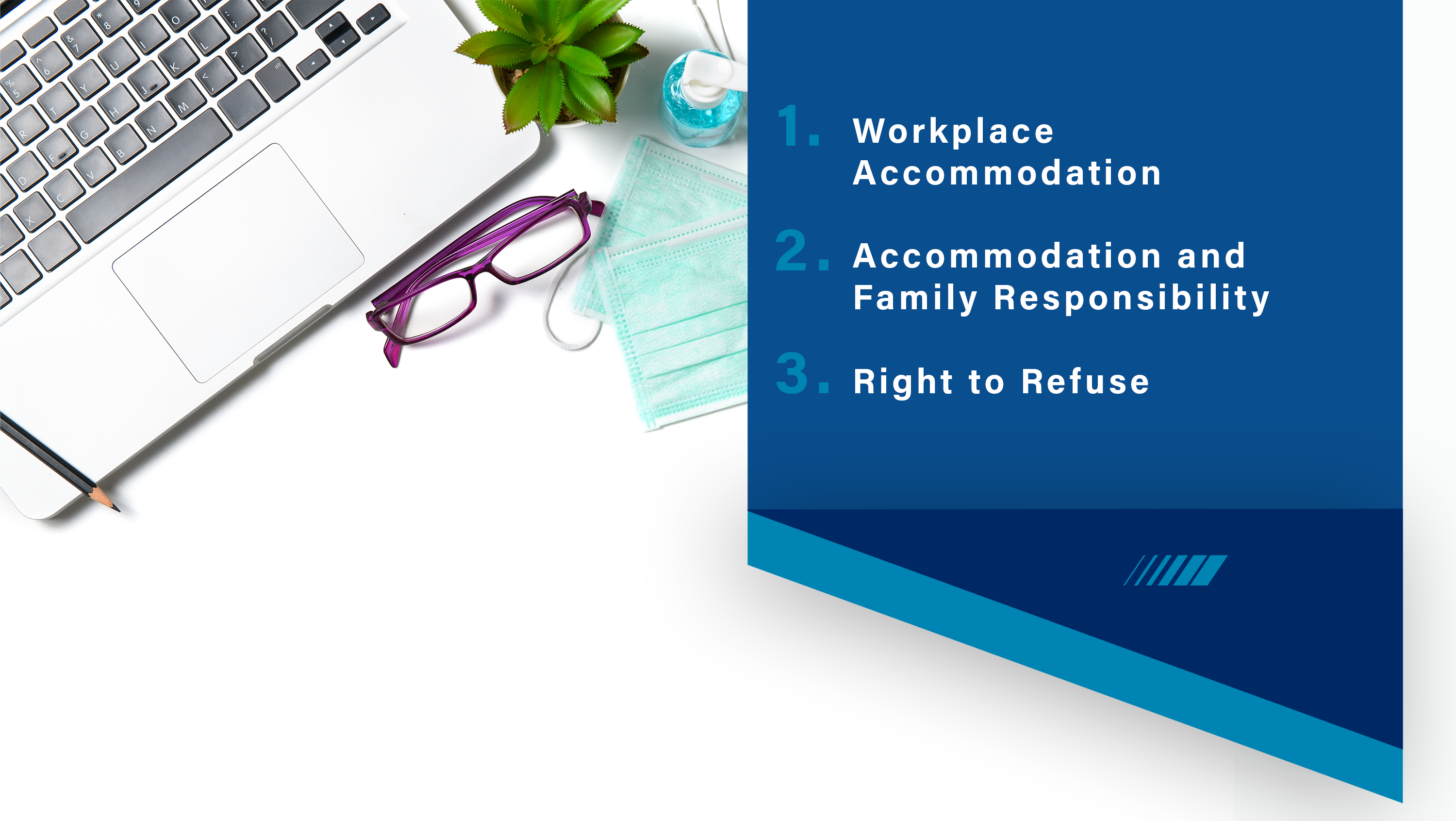| The New Brunswick Teachers’ Federation is currently receiving a large number of calls and emails from members regarding the Return to School 2020. The NBTF continues to update the Frequently Asked Question (FAQ) section which can be found on our website.
The NBTF continues to advocate on behalf of teachers and administrators by raising issues and concerns of members, as well as proposing new ideas and alternative approaches regarding the reopening of schools. At this time, the NBTF believes it is important to provide additional information on the following topics to members:
The government has made it clear that employee safety is a priority. Below is some advice for the above situations. |
| // Workplace Accommodation (member with a medical condition)
Individuals with certain underlying medical conditions may be at greater risk of severe and permanent complications should they contract COVID-19. Teachers in such circumstances should request an accommodation with respect to returning to school in September. Such matters must be addressed individually, on a case by case basis, so the facts and medical documentation will be critically important. The school districts, as employers, have a duty to accommodate an employee’s disability, to the point of undue hardship. There are two main ways in which employees are accommodated: by varying their duties (the employee does the same work, just in a different way or with certain supports/protections in place); or, by re-assignment to a different position (the employer changes some or all of the employee’s job duties and replaces them with different, available work that is compatible with their functional limitations). The first step is always to consider whether a teacher requiring accommodation can be accommodated within their usual workplace, by doing the same work, in a different way. If a teacher feels they need an accommodation due to increased risks from potential exposure to COVID-19, they must obtain medical documentation regarding their condition and functional limitations, including particular risk factors (a family doctor or treating specialist note would be a good starting place), and provide this to the Health and Wellness Coordinator of their school district along with a request for accommodation. The employer may request additional medical information, which should be done in a timely manner. To support a request for accommodation, the documentation must establish a medical need – convenience or preferences, even legitimate ones, will not trigger the employer’s duty to accommodate to the point of undue hardship. Further, if measures taken by the employer are sufficient to allow the teacher to work within their functional limitations, further or different accommodation will not be required – an employee is not entitled to insist upon a particular or preferred accommodation. The following general advice is provided for teachers who are considering seeking a workplace accommodation:
|
| // Accommodation and Family Responsibility
Teachers may also request accommodation because of family responsibilities. For example, such an accommodation might be granted if a close family member with whom a teacher lives or for whom they are legally required to provide in-person care is at greater risk of severe and permanent complications or death should they contract COVID-19, and the family member’s doctor states that the teacher must take every possible precaution to avoid exposure to COVID-19, and therefore cannot return to school. The process and advice for seeking accommodation when a family member is affected is similar to that described above; however, the family member’s medical providers must provide the requisite documentation, not the teacher’s physician. As well, it is important to note that for these types of accommodations, a teacher must be able to demonstrate that they have thoroughly investigated the availability of other reasonable alternatives, apart from employer accommodation, for providing care for the family member. Again, only requirements supported by appropriate medical documentation will trigger the duty to accommodate, and the employer is only required to accommodate to the point of undue hardship. Generally, in response to a request for accommodation, the employer will either request additional information, will propose an accommodation, or will refuse to accommodate. The teacher, in consultation with NBTF, will decide if a proposed accommodation is appropriate and meets their medical needs.
|
| // Right to Refuse
Government and school district re-entry plans identify the health and safety of students and staff as a priority and guiding principle. Under the New Brunswick Occupational Health and Safety Act (the Act), employers must take every “reasonable precaution” to ensure workers’ health and safety. Employees also have the right to refuse unsafe work where they have reasonable grounds for believing that the work is likely to endanger his health or safety or the health or safety of any other employee, and this right applies to schools and teachers in the context of COVID-19 and pandemic response measures. However, there can be disputes as to whether the bar of “unsafe work” is met in certain circumstances. The standard is not one of perfection or elimination of all risk in the workplace. The procedure to be followed when exercising one’s right to refuse is very specific and must be communicated clearly to the employer. The refusal must be accompanied by an explanation of why the employee believes the work is unsafe, and must be communicated on an individual basis by each employee who feels they are being exposed to the danger (for instance, refusals by a group of employees in solidarity with one individual who believes they are endangered is not permitted). Employees who exercise their right to refuse do not lose pay or benefits, but can be reassigned to other work, if possible, while their refusal is being investigated/addressed. With respect to teachers, it must also be remembered that they have a statutory duty under Regulations taken under the Education Act (Reg. 97-150) to supervise students at school. This duty may mean that a member planning to exercise their right to refuse unsafe work will need to do so prior to the start or at the end of a school day, as a teacher cannot simply walk out of the workplace if that would leave students unsupervised. The procedure for teachers to refuse unsafe work is as follows (note: the province has changed the process under Act for Covid-19 based refusals):
During all stages of the investigation process, a teacher may be reassigned to other duties or would otherwise stay home without loss of pay or benefits. The existence of COVID-19 in the province or a community, in and of itself, may not be sufficient to establish that work is dangerous. Any employee refusing unsafe work must be able to demonstrate that the employer is not appropriately managing the risk of exposure – for example, that safety protocols under re-entry plans or as directed by the school districts are not being followed, or that required resources to implement Public Health safety guidelines are not being provided. |








